- Home
- William Shakespeare
The Oxford Shakespeare: The Complete Works Page 11
The Oxford Shakespeare: The Complete Works Read online
Page 11
They say, his body, but his verse shall live,
And more than nature takes our hands shall give.
In a less volume, but more strongly bound,
Shakespeare shall breathe and speak, with laurel crowned,
Which never fades; fed with Ambrosian meat
In a well-lined vesture rich and neat.
So with this robe they clothe him, bid him wear it,
For time shall never stain, nor envy tear it.
‘The friendly admirer of his endowments’, I.M.S.,
in Comedies, Histories, and Tragedies (1632)
Upon Master WILLIAM SHAKESPEARE, the Deceased Author, and his POEMS
Poets are born, not made: when I would prove
This truth, the glad remembrance I must love
Of never-dying Shakespeare, who alone
Is argument enough to make that one.
First, that he was a poet none would doubt
That heard th‘applause of what he sees set out
Imprinted, where thou hast—I will not say,
Reader, his works, for to contrive a play
To him ‘twas none—the pattern of all wit,
Art without art unparalleled as yet.
Next, nature only helped him, for look thorough
This whole book, thou shalt find he doth not borrow
One phrase from Greeks, nor Latins imitate,
Nor once from vulgar languages translate,
Nor plagiary-like from others glean,
Nor begs he from each witty friend a scene
To piece his acts with. All that he doth write
Is pure his own—plot, language exquisite—
But O! what praise more powerful can we give
The dead than that by him the King’s men live,
His players, which should they but have shared the fate,
All else expired within the short term’s date,
How could the Globe have prospered, since through want
Of change the plays and poems had grown scant.
But, happy verse, thou shalt be sung and heard
When hungry quills shall be such honour barred.
Then vanish, upstart writers to each stage,
You needy poetasters of this age;
Where Shakespeare lived or spake, vermin, forbear;
Lest with your froth you spot them, come not near.
But if you needs must write, if poverty
So pinch that otherwise you starve and die,
On God’s name may the Bull or Cockpit have
Your lame blank verse, to keep you from the grave,
Or let new Fortune’s younger brethren see
What they can pick from your lean industry.
I do not wonder, when you offer at
Blackfriars, that you suffer; ‘tis the fate
Of richer veins, prime judgements that have fared
The worse with this deceased man compared.
So have I seen, when Caesar would appear,
And on the stage at half-sword parley were
Brutus and Cassius; O, how the audience
Were ravished, with what wonder they went thence,
When some new day they would not brook a line
Of tedious though well-laboured Catiline.
Sejanus too was irksome, they prized more
Honest Iago, or the jealous Moor.
And though the Fox and subtle Alchemist,
Long intermitted, could not quite be missed,
Though these have shamed all the ancients, and might
raise
Their author’s merit with a crown of bays,
Yet these, sometimes, even at a friend’s desire
Acted, have scarce defrayed the seacoal fire
And doorkeepers; when let but Falstaff come,
Hal, Poins, the rest, you scarce shall have a room,
All is so pestered. Let but Beatrice
And Benedick be seen, lo, in a trice
The Cockpit galleries, boxes, all are full
To hear Malvolio, that cross-gartered gull.
Brief, there is nothing in his wit-fraught book
Whose sound we would not hear, on whose worth look;
Like old-coined gold, whose lines in every page
Shall pass true current to succeeding age.
But why do I dead Shakespeare’s praise recite?
Some second Shakespeare must of Shakespeare write;
For me ‘tis needless, since an host of men
Will pay to clap his praise, to free my pen.
Leonard Digges (before 1636), in Shakespeare’s Poems (1640)
In remembrance of Master William Shakespeare.
ODE
I.
Beware, delighted poets, when you sing
To welcome nature in the early spring,
Your num‘rous feet not tread
The banks of Avon; for each flower
(As it ne’er knew a sun or shower)
Hangs there the pensive head.
2.
Each tree, whose thick and spreading growth hath made
Rather a night beneath the boughs than shade,
Unwilling now to grow,
Looks like the plume a captive wears,
Whose rifled falls are steeped i‘th’ tears
Which from his last rage flow.
3.
The piteous river wept itself away
Long since, alas, to such a swift decay
That, reach the map and look
If you a river there can spy,
And for a river your mocked eye
Will find a shallow brook.
Sir William Davenant, Madagascar, with other
Poems (1637)
An Elegy on the death of that famous Writer and Actor, Master William Shakespeare
I dare not do thy memory that wrong
Unto our larger griefs to give a tongue;
I’ll only sigh in earnest, and let fall
My solemn tears at thy great funeral,
For every eye that rains a show‘r for thee 5
Laments thy loss in a sad elegy.
Nor is it fit each humble muse should have
Thy worth his subject, now thou’rt laid in grave;
No, it’s a flight beyond the pitch of those
Whose worthless pamphlets are not sense in prose.
Let learnèd Jonson sing a dirge for thee,
And fill our orb with mournful harmony;
But we need no remembrancer; thy fame
Shall still accompany thy honoured name
To all posterity, and make us be
Sensible of what we lost in losing thee,
Being the age’s wonder, whose smooth rhymes
Did more reform than lash the looser times.
Nature herself did her own self admire
As oft as thou wert pleased to attire
Her in her native lustre, and confess
Thy dressing was her chiefest comeliness.
How can we then forget thee, when the age
Her chiefest tutor, and the widowed stage
Her only favourite, in thee hath lost,
And nature’s self what she did brag of most?
Sleep, then, rich soul of numbers, whilst poor we
Enjoy the profits of thy legacy,
And think it happiness enough we have
So much of thee redeemed from the grave
As may suffice to enlighten future times
With the bright lustre of thy matchless rhymes.
Anonymous (before 1638), in Shakespeare’s
Poems (1640)
To Shakespeare
Thy muse’s sugared dainties seem to us
Like the famed apples of old Tantalus,
For we, admiring, see and hear thy strains,
But none I see or hear those sweets attains.
To the same
Thou hast so used thy pen, or shook thy spear,
That poets startle, nor
thy wit come near.
Thomas Bancroft, Two Books of Epigrams and
Epitaphs (1639)
To Master William Shakespeare
Shakespeare, we must be silent in thy praise,
‘Cause our encomiums will but blast thy bays,
Which envy could not; that thou didst so well,
Let thine own histories prove thy chronicle.
Anonymous, in Wit’s Recreations (1640)
To the Reader
I here presume, under favour, to present to your view some excellent and sweetly composed poems of Master William Shakespeare, which in themselves appear of the same purity the author himself, then living, avouched. They had not the fortune, by reason of their infancy in his death, to have the due accommodation of proportionable glory with the rest of his ever-living works, yet the lines of themselves will afford you a more authentic approbation than my assurance any way can; to invite your allowance, in your perusal you shall find them serene, clear, and elegantly plain, such gentle strains as shall recreate and not perplex your brain, no intricate or cloudy stuff to puzzle intellect, but perfect eloquence, such as will raise your admiration to his praise. This assurance, I know, will not differ from your acknowledgement; and certain I am my opinion will be seconded by the sufficiency of these ensuing lines. I have been somewhat solicitous to bring this forth to the perfect view of all men, and in so doing, glad to be serviceable for the continuance of glory to the deserved author in these his poems.
John Benson, in Shakespeare’s Poems (1640)
Of Master William Shakespeare
What, lofty Shakespeare, art again revived,
And Virbius-like now show‘st thyself twice lived?
’Tis Benson’s love that thus to thee is shown,
The labour’s his, the glory still thine own.
These learnèd poems amongst thine after-birth,
That makes thy name immortal on the earth,
Will make the learnèd still admire to see
The muses’ gifts so fully infused on thee.
Let carping Momus bark and bite his fill,
And ignorant Davus slight thy learnèd skill,
Yet those who know the worth of thy desert,
And with true judgement can discern thy art,
Will be admirers of thy high-tuned strain,
Amongst whose number let me still remain.
John Warren, in Shakespeare’s Poems (1640)
THE COMPLETE WORKS
THE TWO GENTLEMEN OF VERONA
THE accomplished elegance of the lyrical verse in The Two Gentlemen of Verona, as well as the skilful, theatrically effective prose of Lance’s monologues, demonstrates that Shakespeare had already developed his writing skills when he composed this play. Nevertheless—and although the earliest mention of it is by Francis Meres in 1598—it may be his first work for the stage; for its dramatic structure is comparatively unambitious, and while some of its scenes are expertly constructed, those involving more than, at the most, four characters betray an uncertainty of technique suggestive of inexperience. It was first printed in the 1623 Folio.
The friendship of the ‘two gentlemen’—Valentine and Proteus—is strained when both fall in love with Silvia. Proteus has followed Valentine from Verona to Milan, leaving behind his beloved Julia, who in turn follows him, disguised as a boy. At the climax of the action Valentine displays the depth of his friendship by offering Silvia to Proteus. The conflicting claims of love and friendship illustrated in this plot had been treated in a considerable body of English literature written by the time Shakespeare wrote his play in, or shortly before, 1590. John Lyly’s didactic fiction Euphues (1578) was an immensely popular example; and Lyly’s earliest plays, such as Campaspe (1584) and Endimion (1588), influenced Shakespeare’s style as well as his subject matter. Shakespeare was writing in a fashionable mode, but his story of Proteus and Julia is specifically (though perhaps indirectly) indebted to a prose fiction, Diana, written in Spanish by the Portuguese Jorge de Montemayor and first published in 1559. Many other influences on the young dramatist may be discerned: his idealized portrayal of Silvia and her relationship with Valentine derives from the medieval tradition of courtly love; Arthur Brooke’s long poem The Tragical History of Romeus and Juliet (1562) provided some details of the plot; and the comic commentary on the romantic action supplied by the page-boy Speed and the more rustic clown Lance has dramatic antecedents in English plays such as Lyly’s early comedies.
Though the play was presumably acted in Shakespeare’s time, its first recorded performance is in 1762, in a rewritten version at Drury Lane. Later performances have been sparse, and the play has succeeded best when subjected to adaptation, increasing its musical content, adjusting the emphasis of the last scene so as to reduce the shock of Valentine’s donation of Silvia to Proteus, and updating the setting. It can be seen as a dramatic laboratory in which Shakespeare first experimented with conventions of romantic comedy which he would later treat with a more subtle complexity, but it has its own charm. If the whole is not greater than the parts, some of the parts—such as Lance’s brilliant monologues, and the delightful scene (4.2) in which Proteus serenades his new love with ‘Who is Silvia?’ while his disguised old love, Julia, looks wistfully on—are wholly successful. And Lance’s dog, Crab, has the most scene-stealing non-speaking role in the canon: this is an experiment that Shakespeare did not repeat.
THE PERSONS OF THE PLAY
DUKE of Milan
SILVIA, his daughter
PROTEUS, a gentleman of Verona
LANCE, his clownish servant
VALENTINE, a gentleman of Verona
SPEED, his clownish servant
THURIO, a foolish rival to Valentine
ANTONIO, father of Proteus
PANTHINO, his servant
JULIA, beloved of Proteus
LUCETTA, her waiting-woman
HOST, where Julia lodges
EGLAMOUR, agent for Silvia in her escape
OUTLAWS
Servants, musicians
The Two Gentlemen of Verona
1.1 Enter Valentine and Proteus
VALENTINE
Cease to persuade, my loving Proteus.
Home-keeping youth have ever homely wits.
Were’t not affection chains thy tender days
To the sweet glances of thy honoured love,
I rather would entreat thy company
To see the wonders of the world abroad
Than, living dully sluggardized at home,
Wear out thy youth with shapeless idleness.
But since thou lov’st, love still, and thrive therein—
Even as I would, when I to love begin.
PROTEUS
Wilt thou be gone? Sweet Valentine, adieu.
Think on thy Proteus when thou haply seest
Some rare noteworthy object in thy travel.
Wish me partaker in thy happiness
When thou dost meet good hap; and in thy danger—
If ever danger do environ thee—
Commend thy grievance to my holy prayers;
For I will be thy beadsman, Valentine.
VALENTINE
And on a love-book pray for my success?
PROTEUS
Upon some book I love I’ll pray for thee.
VALENTINE
That’s on some shallow story of deep love—
How young Leander crossed the Hellespont.
PROTEUS
That’s a deep story of a deeper love,
For he was more than over-shoes in love.
VALENTINE
‘Tis true, for you are over-boots in love,
And yet you never swam the Hellespont.
PROTEUS
Over the boots? Nay, give me not the boots.
VALENTINE
No, I will not; for it boots thee not.
PROTEUS
What?
VALENTINE
To be in love, where scorn is bought with gr
oans,
Coy looks with heart-sore sighs, one fading moment’s
mirth
With twenty watchful, weary, tedious nights.
If haply won, perhaps a hapless gain;
If lost, why then a grievous labour won;
However, but a folly bought with wit,
Or else a wit by folly vanquished.
PROTEUS
So by your circumstance you call me fool.
VALENTINE
So by your circumstance I fear you’ll prove.
PROTEUS
‘Tis love you cavil at. I am not love.
VALENTINE
Love is your master, for he masters you,
And he that is so yoked by a fool
Methinks should not be chronicled for wise.
PROTEUS
Yet writers say ‘As in the sweetest bud
The eating canker dwells, so doting love
Inhabits in the finest wits of all.’
VALENTINE
And writers say ‘As the most forward bud
Is eaten by the canker ere it blow,
Even so by love the young and tender wit
Is turned to folly, blasting in the bud,
Losing his verdure even in the prime,
And all the fair effects of future hopes.’
But wherefore waste I time to counsel thee
That art a votary to fond desire?
Once more adieu. My father at the road
Expects my coming, there to see me shipped.
PROTEUS
And thither will I bring thee, Valentine.
VALENTINE
Sweet Proteus, no. Now let us take our leave.
To Milan let me hear from thee by letters
Of thy success in love, and what news else
Betideth here in absence of thy friend;
And I likewise will visit thee with mine.
PROTEUS
All happiness bechance to thee in Milan.
VALENTINE
As much to you at home; and so farewell. Exit
PROTEUS
He after honour hunts, I after love.
He leaves his friends to dignify them more,
I leave myself, my friends, and all, for love.
Thou, Julia, thou hast metamorphosed me,
Made me neglect my studies, lose my time,
War with good counsel, set the world at naught;

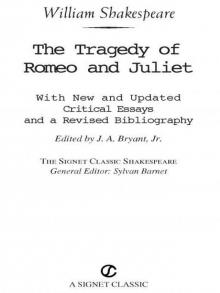 Romeo and Juliet
Romeo and Juliet As You Like It (Folger Shakespeare Library)
As You Like It (Folger Shakespeare Library)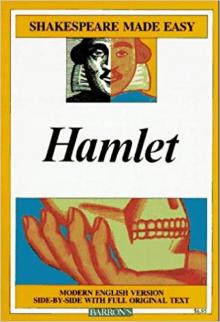 Hamlet
Hamlet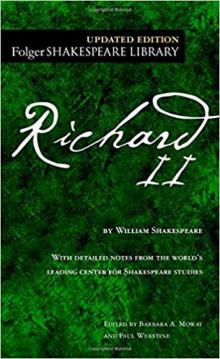 Richard II (Folger Shakespeare Library)
Richard II (Folger Shakespeare Library) Macbeth
Macbeth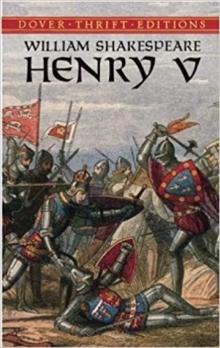 Henry V
Henry V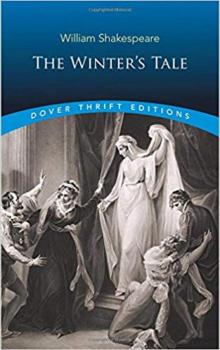 The Winter's Tale
The Winter's Tale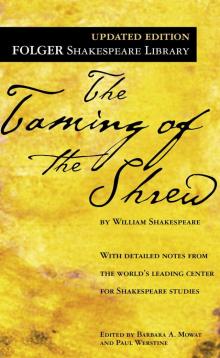 The Taming of the Shrew
The Taming of the Shrew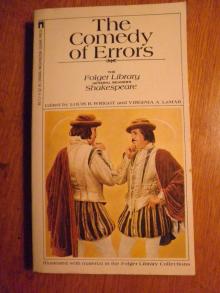 The Comedy of Errors
The Comedy of Errors King Lear (Folger Shakespeare Library)
King Lear (Folger Shakespeare Library)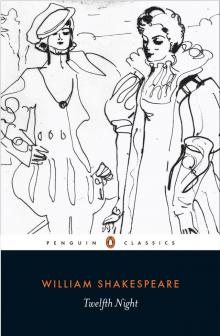 Twelfth Night
Twelfth Night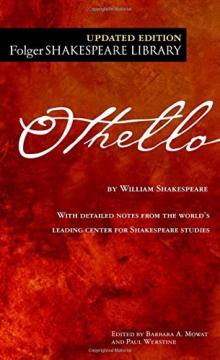 Othello
Othello The Two Gentlemen of Verona
The Two Gentlemen of Verona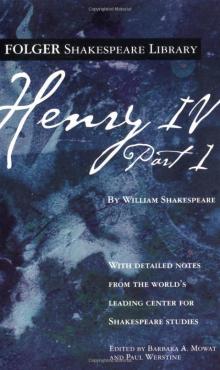 Henry IV, Part 1 (Folger Shakespeare Library)
Henry IV, Part 1 (Folger Shakespeare Library)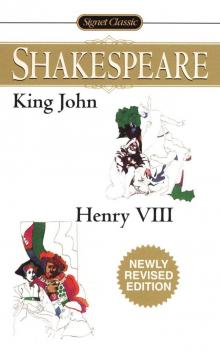 King John/Henry VIII (Signet Classics)
King John/Henry VIII (Signet Classics)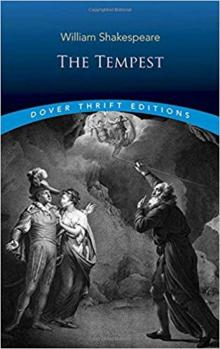 The Tempest
The Tempest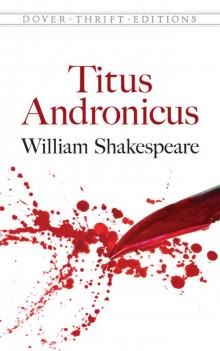 Titus Andronicus (Dover Publications)
Titus Andronicus (Dover Publications)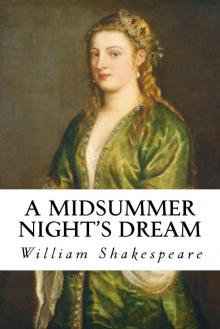 A Midsummer Night's Dream
A Midsummer Night's Dream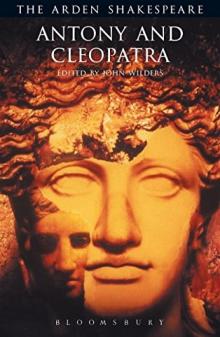 Antony and Cleopatra (Arden Shakespeare: Third Series)
Antony and Cleopatra (Arden Shakespeare: Third Series)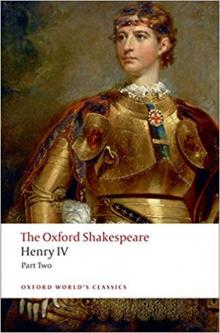 The Oxford Shakespeare: Henry IV, Part 2 (Oxford World's Classics)
The Oxford Shakespeare: Henry IV, Part 2 (Oxford World's Classics)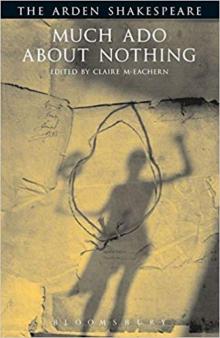 Much Ado About Nothing (Arden Shakespeare: Third Series)
Much Ado About Nothing (Arden Shakespeare: Third Series)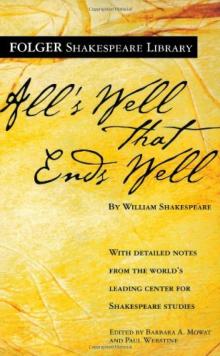 All's Well That Ends Well
All's Well That Ends Well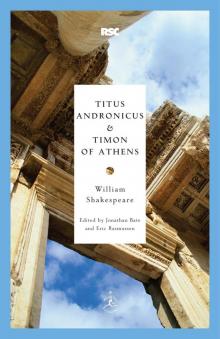 Titus Andronicus & Timon of Athens
Titus Andronicus & Timon of Athens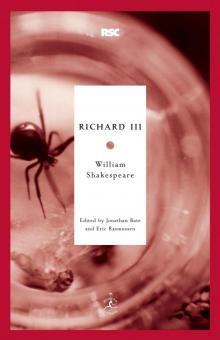 Richard III (Modern Library Classics)
Richard III (Modern Library Classics) Coriolanus
Coriolanus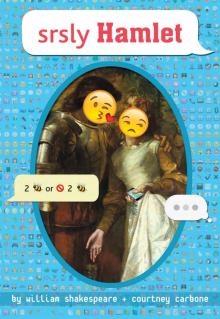 srsly Hamlet (OMG Shakespeare)
srsly Hamlet (OMG Shakespeare)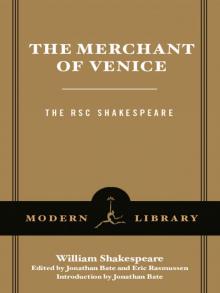 The Merchant of Venice
The Merchant of Venice Richard III
Richard III Richard II
Richard II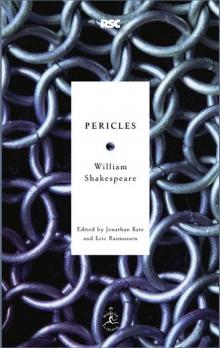 Pericles
Pericles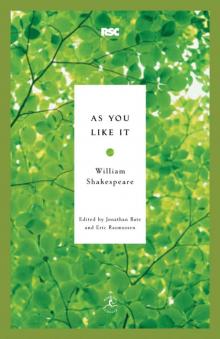 As You Like It
As You Like It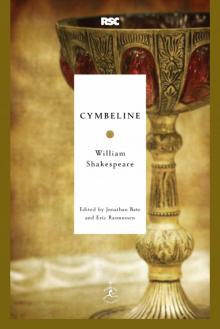 Cymbeline
Cymbeline Alls Wel that ends Well
Alls Wel that ends Well YOLO Juliet
YOLO Juliet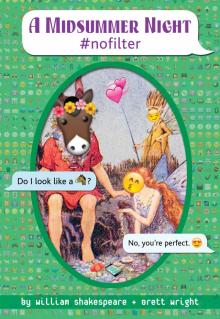 A Midsummer Night #nofilter
A Midsummer Night #nofilter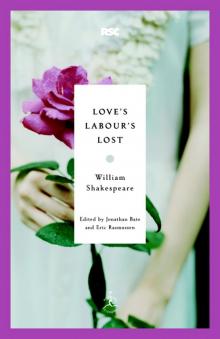 Love's Labour's Lost
Love's Labour's Lost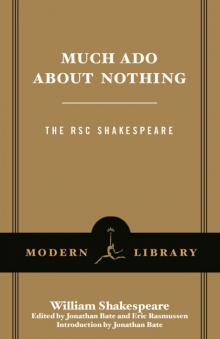 Much Ado About Nothing
Much Ado About Nothing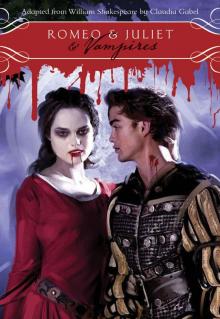 Romeo & Juliet & Vampires
Romeo & Juliet & Vampires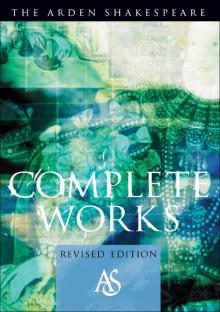 The Arden Shakespeare Complete Works
The Arden Shakespeare Complete Works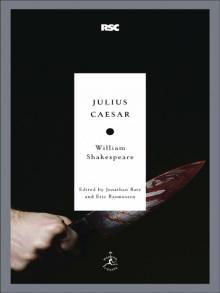 Julius Caesar
Julius Caesar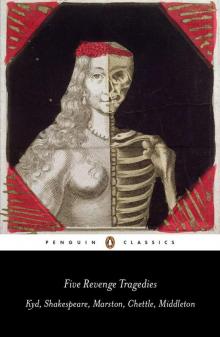 Five Revenge Tragedies: The Spanish Tragedy, Hamlet, Antonio's Revenge, The Tragedy of Hoffman, The Revenger's Tragedy (Penguin Classics)
Five Revenge Tragedies: The Spanish Tragedy, Hamlet, Antonio's Revenge, The Tragedy of Hoffman, The Revenger's Tragedy (Penguin Classics) Macbeth #killingit
Macbeth #killingit The Oxford Shakespeare: The Complete Works
The Oxford Shakespeare: The Complete Works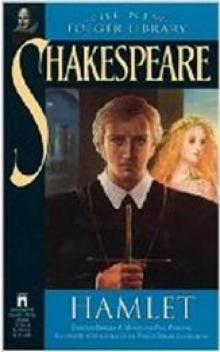 Hamlet, Prince of Denmark (Collins edition)
Hamlet, Prince of Denmark (Collins edition) King John & Henry VIII
King John & Henry VIII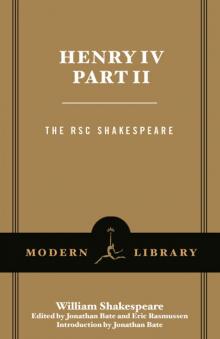 Henry IV, Part 2
Henry IV, Part 2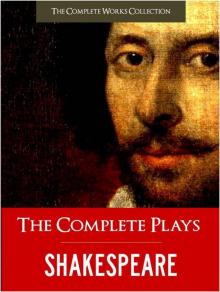 Complete Plays, The
Complete Plays, The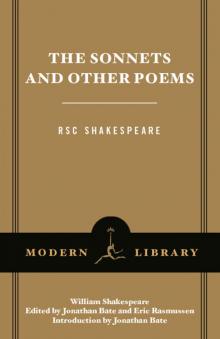 The Sonnets and Other Poems
The Sonnets and Other Poems Antony and Cleopatra
Antony and Cleopatra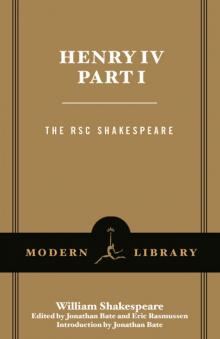 Henry IV, Part 1
Henry IV, Part 1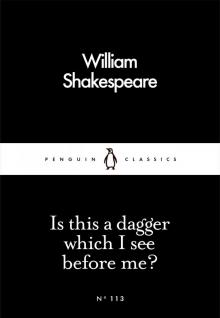 Is This a Dagger Which I See Before Me?
Is This a Dagger Which I See Before Me? The Complete Works of William Shakespeare In Plain and Simple English (Translated)
The Complete Works of William Shakespeare In Plain and Simple English (Translated) The Sonnets
The Sonnets